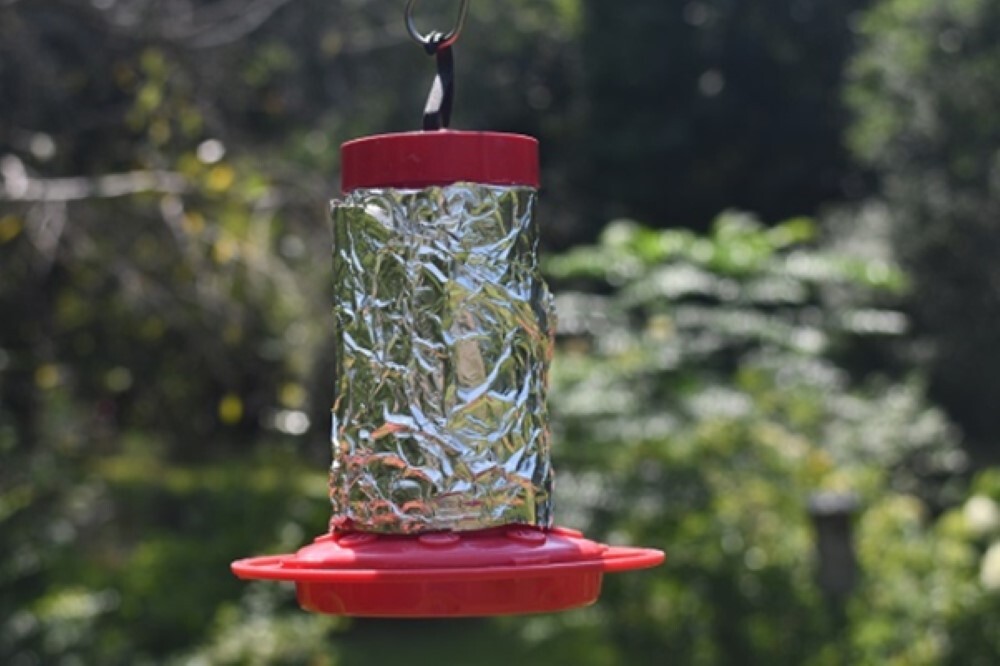

Summer's soaring temperatures can turn your hummingbird feeder into a spoiled trap, but a simple trick with aluminium foil might just keep that nectar fresh and safe. Summer's soaring temperatures can turn a hummingbird feeder into a spoiled trap, but a simple trick with aluminium foil might just keep that nectar fresh and safe. Known for its reflective efficiency, aluminium foil can help shield feeders from heat and sunlight, making it a practical and inexpensive safeguard during the hottest months.

With ambient temperatures exceeding 90°F, the sucrose-based nectar in hummingbird feeders is prone to rapid spoilage, leading to fermentation or the development of harmful bacteria and mould that pose significant risks to avian health. Applying an aluminium foil wrap around the feeder serves as a reflective barrier against heat and direct sunlight, thereby aiding in maintaining nectar temperature and preserving its quality for these sensitive species.
The reflective surface of aluminium foil effectively deflects both thermal energy and light, a property leveraged in insulation applications and equally beneficial in shielding feeders from direct solar exposure. In addition to moderating temperature, the foil's high-gloss finish can act as a deterrent to insects and small mammals, as the resulting glare may disorient or discourage persistent species such as bees and squirrels.
For individuals or organisations aiming to attract hummingbirds during peak migration periods, maintaining nectar quality is a critical factor. Degraded or contaminated nectar not only reduces visitation rates but also presents significant health hazards to the species.
Also read: Market commentary: Aluminium foil is looking towards a $48.8 billion market by 2034
Implementation of this method involves wrapping aluminium foil around the feeder's nectar reservoir, with a slight crumpling of the foil recommended to introduce an insulating air layer. Positioning the feeder in shaded areas or utilising glass units in place of plastic can further enhance temperature regulation. Additional measures, such as incorporating ice into the nectar or replenishing smaller volumes at higher frequencies, can also mitigate spoilage risks.
Integrating these measures with the application of an aluminium foil wrap supports the preservation of nectar quality, ensuring feeders remain both attractive and safe for hummingbirds. Such practices facilitate sustained avian activity and observation opportunities throughout the summer period.
Note: To feature your brand and share insights, contribute an article or interview in our forthcoming e-magazine "Sustainability & Recycling: Aluminium's Dual Commitment"
Responses








